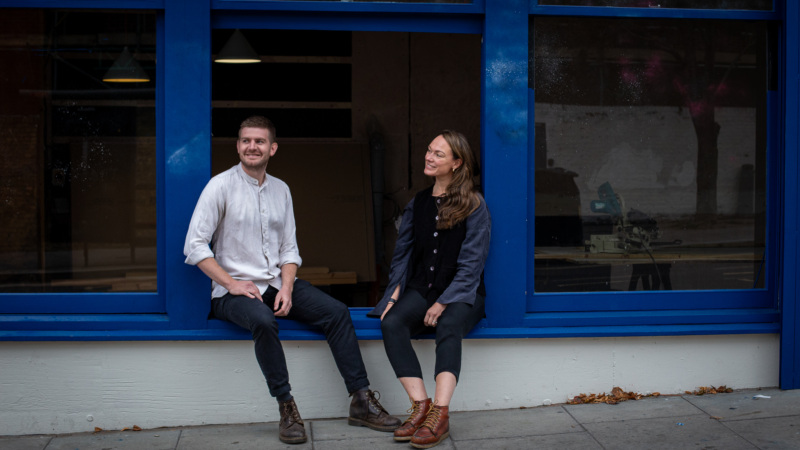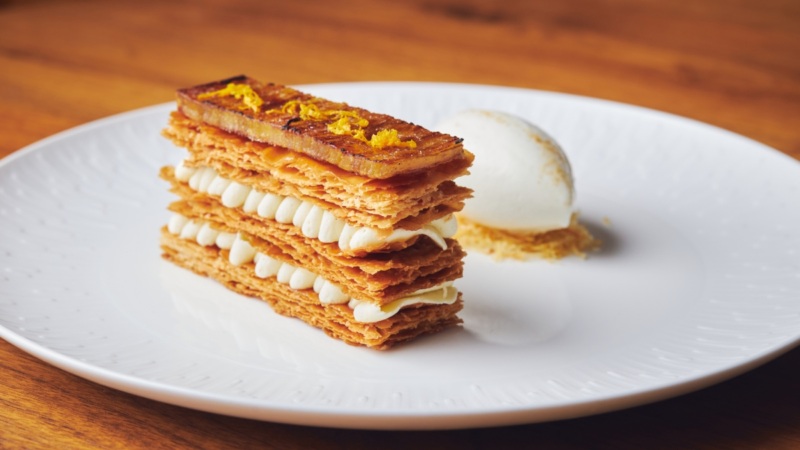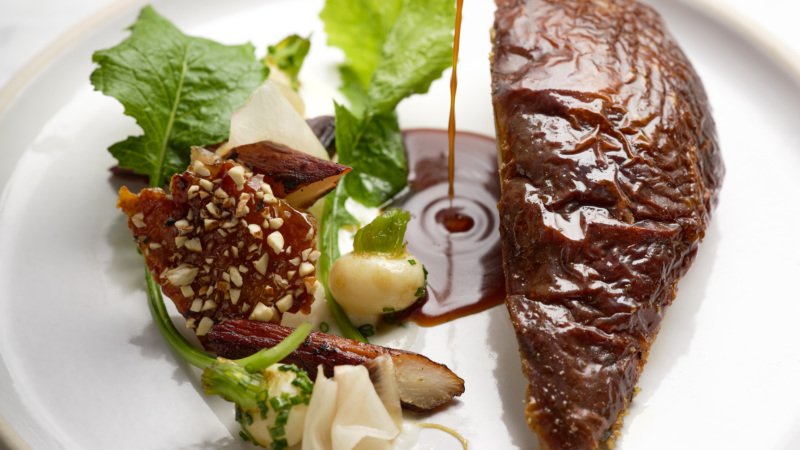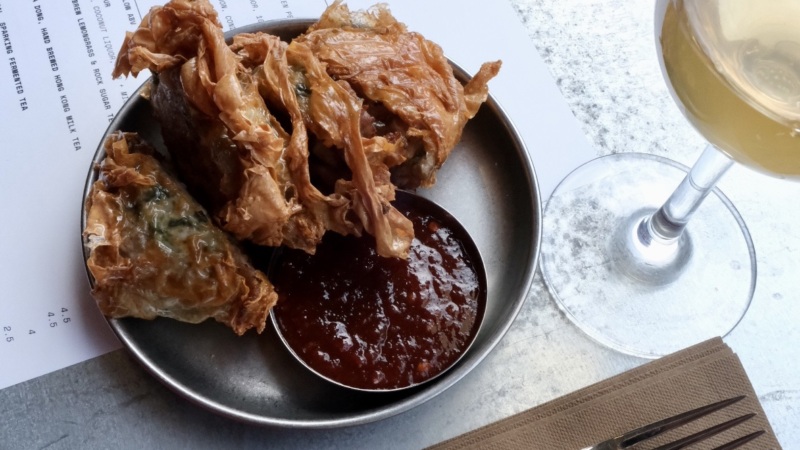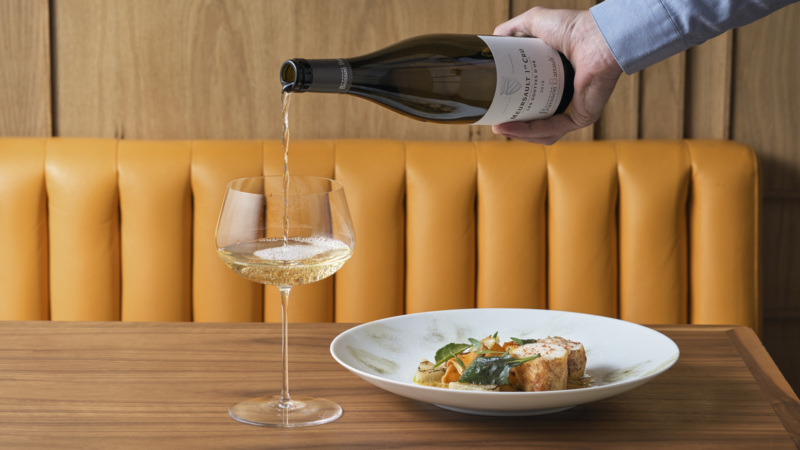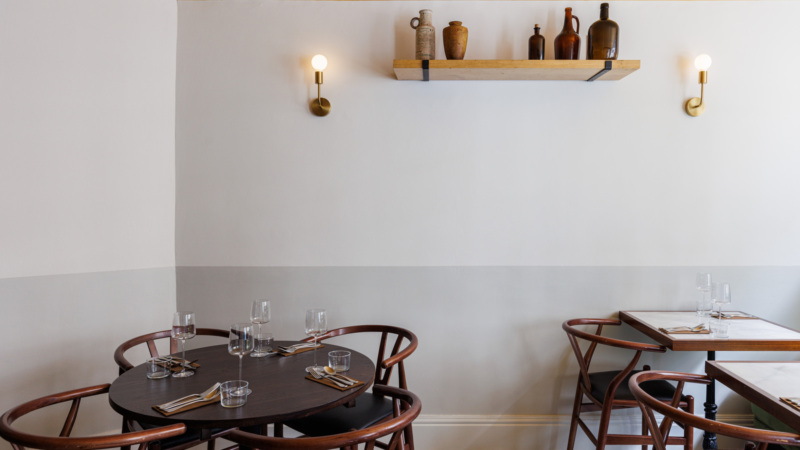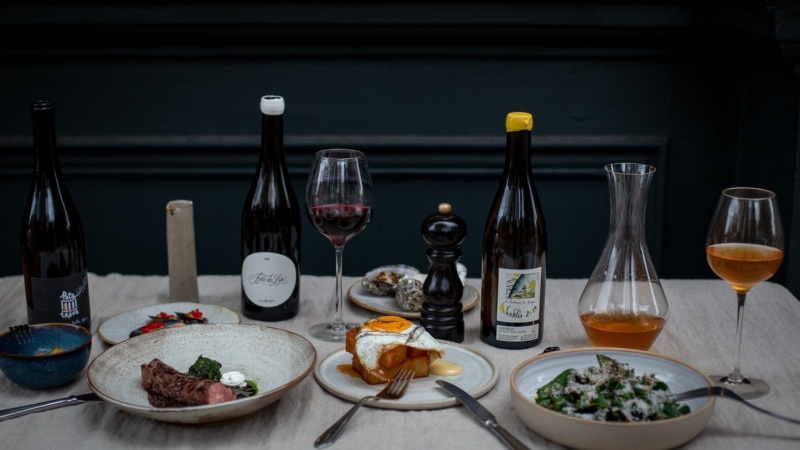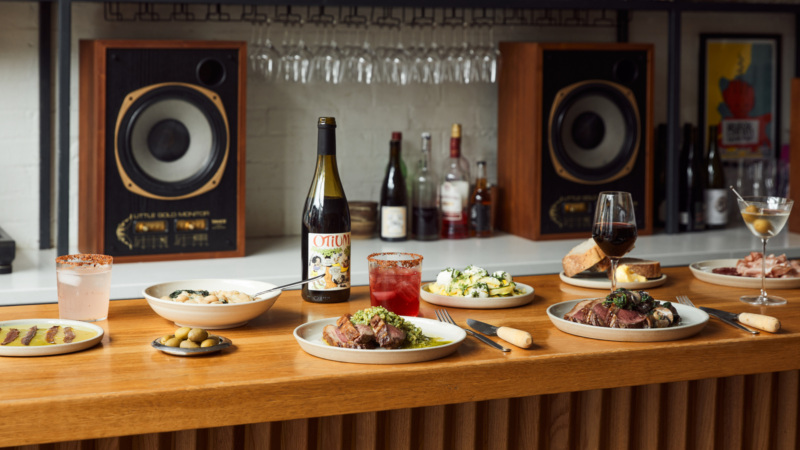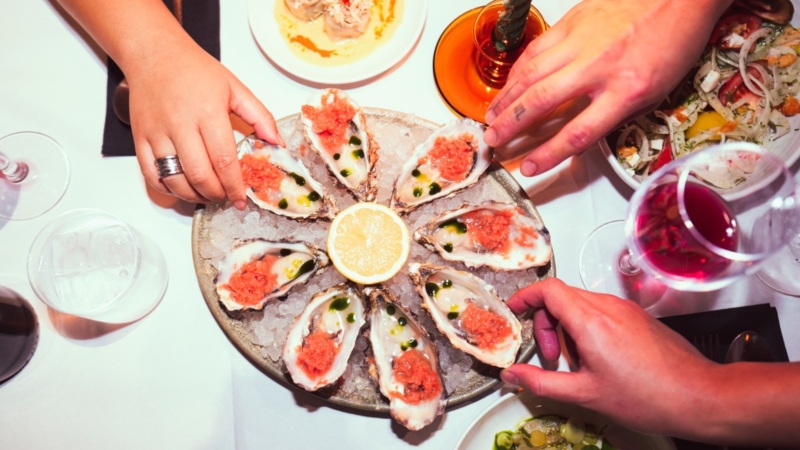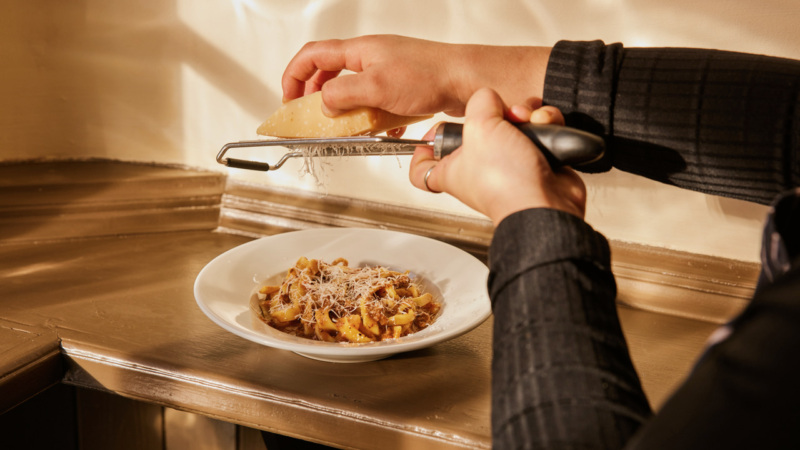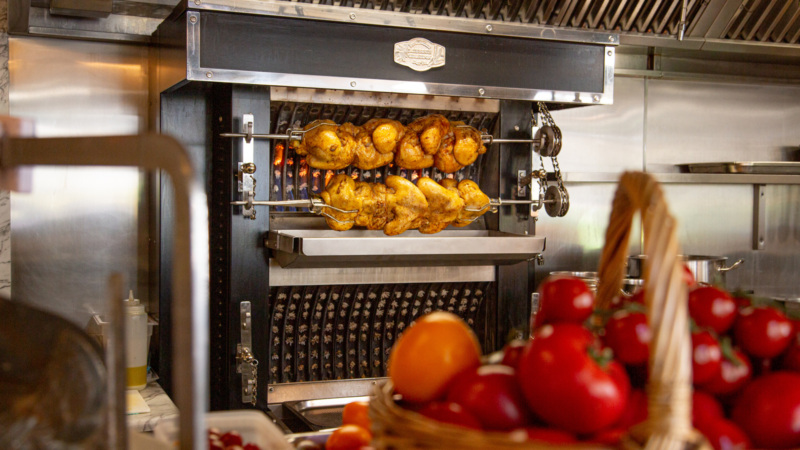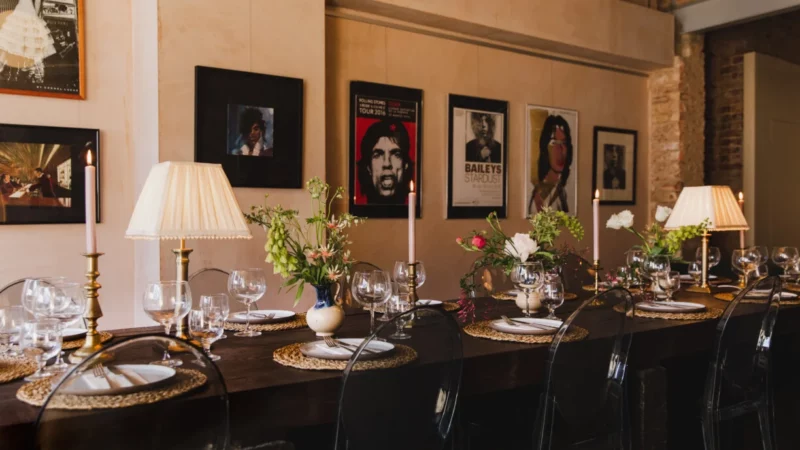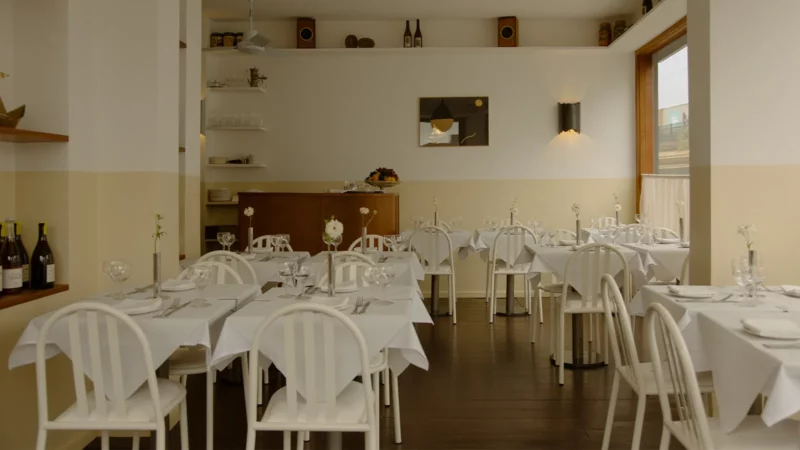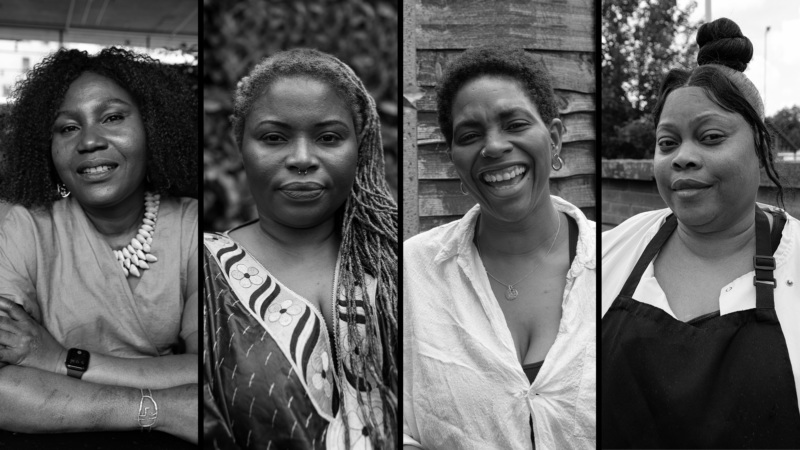
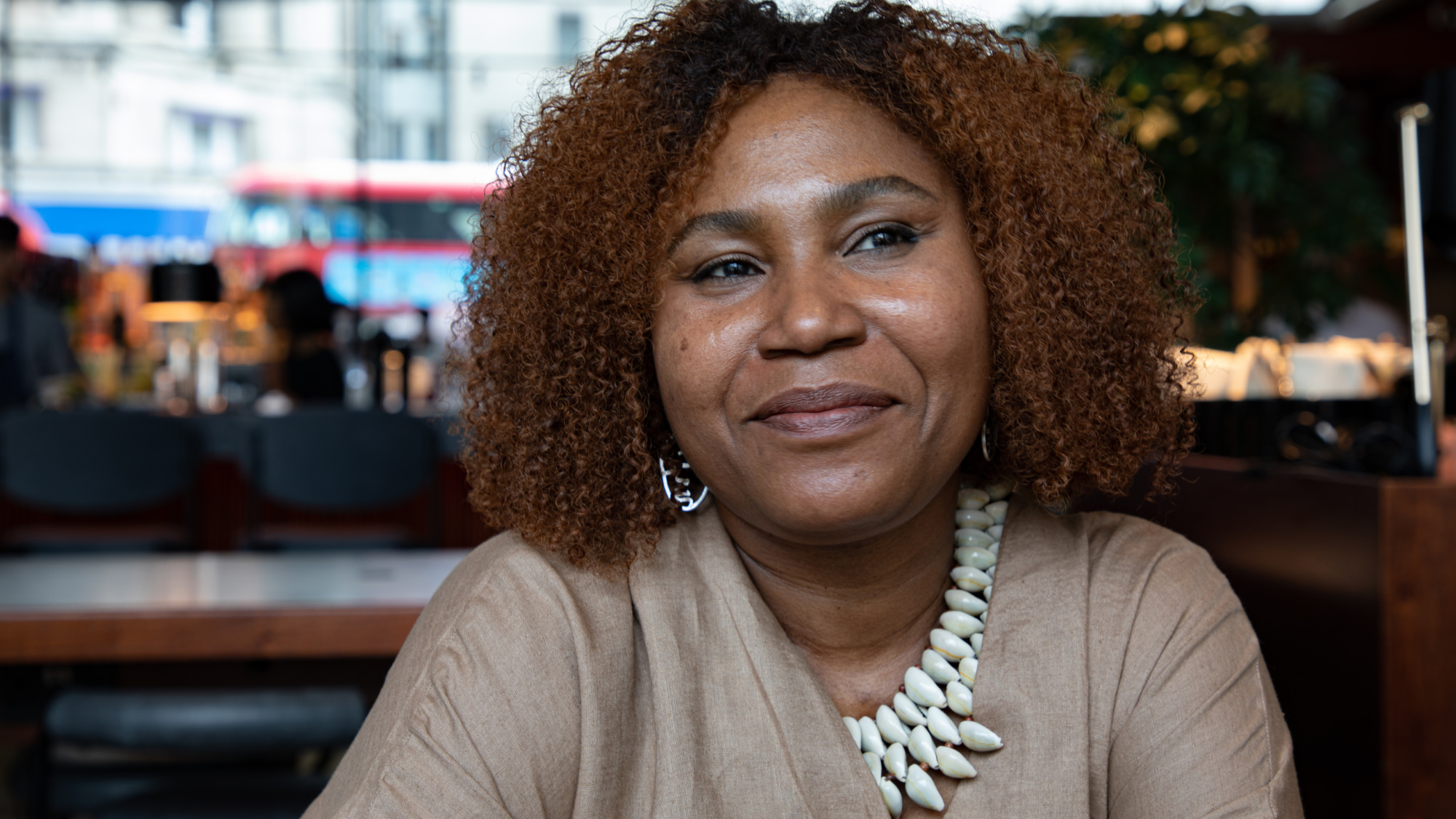
Adejoké Bakare, Chef-Owner, Chishuru
Food was always Adejoké Bakare’s first love. But it was never a viable career option.
Instead, she took a job in human resources, one that eventually pushed her into a depression as she wondered, ‘is this it?’
“I was going through a depressive episode,” she says, “and I was really, really down. Stuck in a rut and knowing there’s more to what I can give.”
For anyone who has been to Chishuru, spoken with Joké (as she is known) and eaten her food, it’s difficult to imagine her being anything but a chef. Her food is intoxicating, the creativity behind it making it almost unbelievable that she has only been doing this for a couple of years.
Opened in the middle of the pandemic, the Brixton restaurant has won countless awards, including being voted the best restaurant in London by Time Out and being listed in the Top 100 Restaurants In The UK at the National Restaurant Awards. It’s been quite the ride for a woman who had never worked in a restaurant before 2020.
Her push into the world of restaurants came from one of her friends, who saw how frustrated she was and gave her an ultimatum. “She was constantly on my case,” laughs Joké, “she said, ‘you know what, if you don’t use your love of food then we’re not friends – because you’re just wasting your life.’ She wasn’t messing about.”
It was the same friend who saw a competition to win a six-month spot in Brixton Village, plus mentoring. Joké answered the advert half-heartedly, never believing she would win. But she did, and the rest is history in the making. “I initially thought I would carry on with my day job,” she laughs. “I told them, ‘I’ll do this Monday to Wednesday and then cook Thursday to Saturday’.”
But in spite of Joké’s lack of experience, when Chishuru opened in September 2020 it was to immediate adulation. Her food is unique, owing to the influences of her youth, an intersection of different tribal influences. Growing up in Hausaland of northern Nigeria, in a home with an Igbo mum and Yoruba dad. Each of the different tribes’ traditions were reflected in the family’s food.
“When me or my sisters cook, it’s always a mix. Of what we ate at our neighbours’, Yoruba and Igbo mixed together,” she explains. “We weren’t conscious of it, it was always instinctive. But we knew we were standing at the intersection of these three great food traditions. And we loved it, we identified with it all.”
She uses egusi, the dish made from a base of fermented melon seeds, as an example. “All the tribes have their own form of egusi. Igbo make theirs slightly thick, but not as thick as Yorubas. Igbo mix some fermented fish and spices, but Yorubas go plain,” she says. “So we were always mixing both traditions, a mish-mash. We made it ours.”
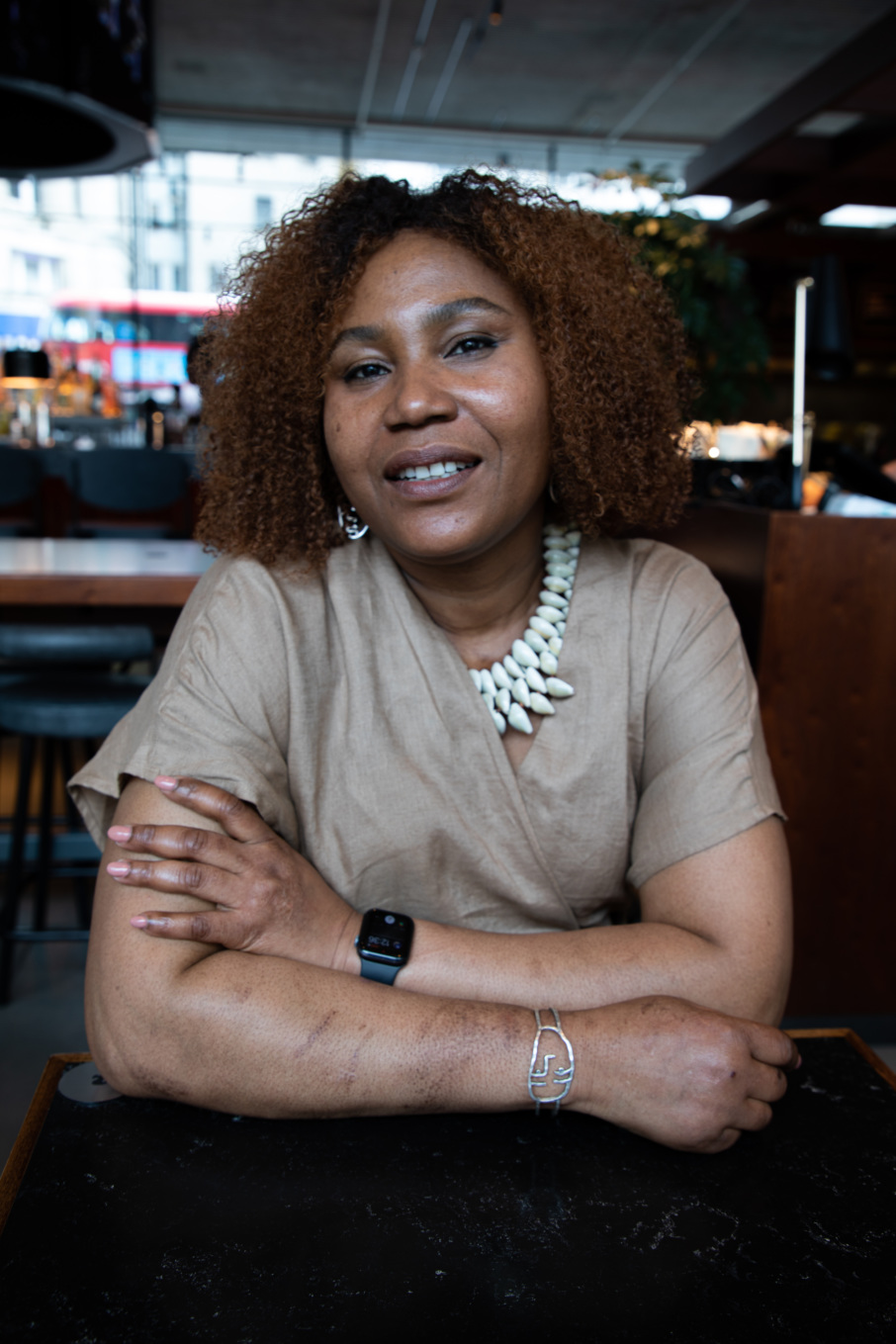
Joké’s love of cooking started early, when she almost blocked the sink with failed attempts of pounded yam that she’d tried to master when her parents had gone out. She would cook alongside her paternal grandmother, “the kind of woman that didn’t talk much and didn’t have time for kids” but tolerated Joké’s curiosity. “She’d make good use of me, telling me to sift this, press that. I was in heaven, loved it.”
“It amazed me that we could cut this, fry it and it became something…ingredients being transformed into something people can eat and like. There’s that joy: ‘Oh you’re eating something I made!’”, she says. “It’s always about feeding people. Bringing pleasure that way.”
That same pleasure is evident in Joké’s food. It tells a story, even if diners don’t necessarily know what that story is. It’s something they can feel and taste.
So why didn’t she pursue a career in food from the outset? Her eyes open, arms stretch out with palms turned upwards as though the answer is obvious. “I wasn’t allowed to!”
“A lot of young Black chefs are going fine-dining and avoiding mid-range, to avoid people not getting it and being hypercritical. It’s criticism you don’t get with French or other European cuisines.”
As the eldest of four children, it was unthinkable for Joké to work in food. When she arrived in the UK 20 years ago, it was to study microbiology but she “hated” it. Then she became pregnant with her eldest child, much to her family’s disappointment, so she stayed in the UK. Eventually she found a job in HR, at first enjoying “standing around with a clipboard, telling people what to do”, but it eventually lost its allure.
And now she’s here, having finally found her calling.
That’s not to say restaurant life is easy. The pandemic and staff shortages aside, Joké has come across unexpected difficulties navigating the expectations of those most familiar with Nigerian food.
The lack of Black-owned restaurants to have reached Chishuru’s level of exposure means her success has come with a scrutiny that is quite novel – and largely from within the West African community.
It is as though, she feels, she is now seen as a representative for Nigerian food, as though her food should speak for the whole country. The rare criticism she gets is often about price and portion sizes – even though her offering is on a par or cheaper than similar restaurants.
“I don’t think people realise this criticism comes from a place of internalised racism, this idea that ‘ethnic food’ has to be big portions and inexpensive,” she says. “Our people need to realise that this isn’t what auntie or grandma used to cook. This is what people eat in a restaurant. I’m not doing high-end; I’m not doing mom-and-pop shop.”
“That is why I think a lot of young Black chefs are going fine-dining and avoiding mid-range, to avoid people not getting it and being hypercritical,” she continues. “It’s criticism you don’t get with French or other European cuisines. For Black people, the yardstick we use to measure our excellence, or our own achievement is different to what we use for other races.”
Melissa Thompson is a London-based food and drink writer. Follow her on Instagram and Twitter. Follow Resy, too.


